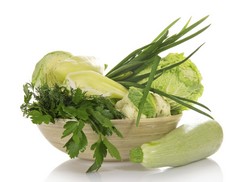Promoting fresh produce
Based at the Warsaw University of Life Sciences in Poland, the Warsaw Plant Health Cluster (WPHC) is home to over 60 researchers and more than 40 PhD students. The scientists make up several research teams that deal with various aspects within the plant health domain. These include a number of academic disciplines, such as entomology, plant pathology, plant genetics and plant ecology. The aim of the WULS PLANT HEALTH(opens in new window) (Warsaw Plant Health Initiative) project was to enhance the research capacity of the WPHC. It enabled better responses to the challenges of evolving EU plant health regulations and to the ever increasing demand for high-quality, healthy and fresh produce. Short-term priorities involved ensuring that any gaps were filled in integrated pest management recommendations. Long-term strategies involved the use of plant protection strategies such as semiochemicals, which carry chemical messages, to modify pest behaviour. Other strategies included the use of antagonistic micro-organisms and molecular methods to develop plants resistant to biotic and abiotic stimuli. Internal WPHC organisation and institutional research policy were modernised and updated and pre-identified competence gaps filled. Furthermore, international networking and collaboration were boosted, and the WPHC's visibility improved. To date, more than half of the equipment needed for upgrades has already been installed and paid for. Various workshops and symposiums, as well as young staff exchange visits, have also been helped through capacity building and networking. These efforts represented a critical step in the modernisation of relevant departments within the WPHC. In the long run, this EU-funded initiative will promote an innovation-friendly institutional environment, as well as close skills gaps and support the adoption of new research methods and approaches. WULS PLANT HEALTH will have a major social and economic impact due to the steady demand for healthy fresh fruit and vegetables. These will be produced in a sustainable way, with particular regard to climate change and the translocation of pests.




